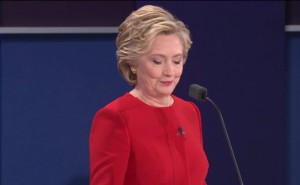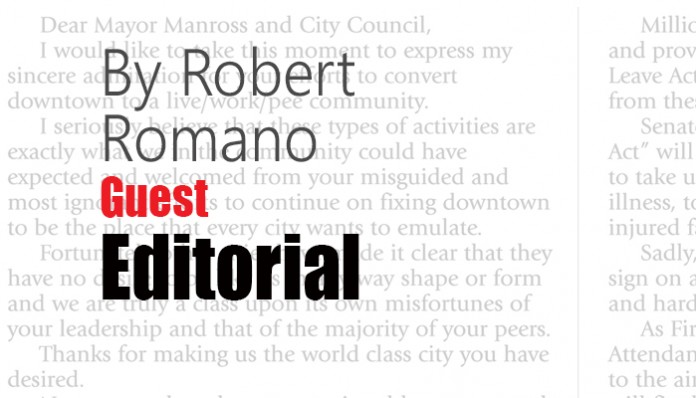“That’s your opinion.”

That was Hillary Clinton’s Sept. 26 debate response to Donald Trump’s contention that “Your husband signed NAFTA, which was one of the worst things that ever happened to the manufacturing industry.”
Trump is now leading in polls in Ohio and rallying from behind in Pennsylvania, Michigan and other rust belt states — states whose manufacturing presence has been decimated in the past two decades.
To be certain, since the North American Free Trade Agreement (NAFTA) went into effect in 1994, about 5 million manufacturing jobs have been lost nationwide according to data compiled by the Bureau of Labor Statistics. To be fair it didn’t happen all at once — most of the losses happened after the dotcom bubble popped at the end of the 1990s and after the financial crisis in 2008.
Now, it is certainly debatable whether NAFTA bears all the blame. Trump also cites China’s entry into the World Trade Organization in 2000 and Congress granting permanent normal trade relations with Beijing in 2000.
And maybe it wasn’t even all trade.
But try telling that to the folks who live in those communities that have been wrecked when the factories closed down and went overseas, chasing lower costs. They do happen to attribute it to the trade deals. Sometimes perception matters more. It’s an opinion shared by millions of Americans.
Either way, the job losses were real. They actually happened. Not opinion. And Clinton can argue until she is blue in the face that it wasn’t the trade deals, but those jobs still won’t come back.
That is why Clinton’s dismissive remark was perhaps her biggest gaffe of the presidential election campaign so far, particularly when one takes a close look at the electoral map. She could have at least acknowledged the losses and the possibility that the trade deals played a role. Instead she dismissed the concern with hand waving akin to Marie Antoinette’s supposed saying, “Let them eat cake.” Very risky. The one thing she cannot afford to lose are any more union households that traditionally vote Democrat in states like Ohio, Pennsylvania and Michigan, who are greatly concerned by the economic decline the U.S. is experiencing.
Again, not opinion. The economic slowdown is real.
Labor participation has steadily been dropping since the late 1990s too along with employment population ratios for 16 to 64 year olds. That is, segmenting out seniors who are retiring en masse, you’re still looking at millions of working age adults either leaving the labor force or not entering on a net basis. They’re piling up.
Economic growth has slowed down (not above an inflation-adjusted 4 percent since 2000, not above 3 percent since 2005).
Interest rates have collapsed; so has inflation.
Even with 2015 factored in, the growth of incomes has been very flat during the same time span.
The number of jobs created has slowed down.
Everything is slowing down.
And it is having a real impact on American communities and families — particularly in the Rust Belt states Clinton needs to win. It didn’t happen in a vacuum. Once vibrant towns are being hollowed out. In the meantime, things have not really recovered after the financial crisis.
Again, not opinion. Those things really happened.
Trump and others have related the slowdown to the issues surrounding trade and globalization. He discusses the broader costs of doing business in the U.S. including things Republicans traditionally talk about, including high taxes, too much regulation, etc. And things they usually don’t like to talk about, which are the taxes foreign countries put on our goods via subsidies for their goods, currency devaluation and tariffs. For businesses, those higher costs hurt either way, with higher relative costs here as opposed to abroad having helped hurt businesses, killed jobs and resulted in outsourcing.
Judging by his success during the primaries and now picking up ground in rust belt states like Ohio and Pennsylvania which he absolutely needs to win, it appears to be a message that is resonating. He’s taking account of current events and problems, telling people where they fit in those events and offering a political program to deal with the problems.
Win or lose in the end, the economic slowdown and its impact on the American people articulated above are going to be some of the biggest challenges facing the new administration and future candidates and Congress. Sadly, the longer it takes for a robust economic recovery to create jobs, the worse the politics will become on this.
In the meantime, those politics definitely will not favor Clinton if she cannot even acknowledge the problem, which is the buzz saw she inadvertently walked into when she let Trump lure her out on trade and NAFTA. Round one goes to Trump.
Robert Romano is the senior editor of Americans for Limited Government.





